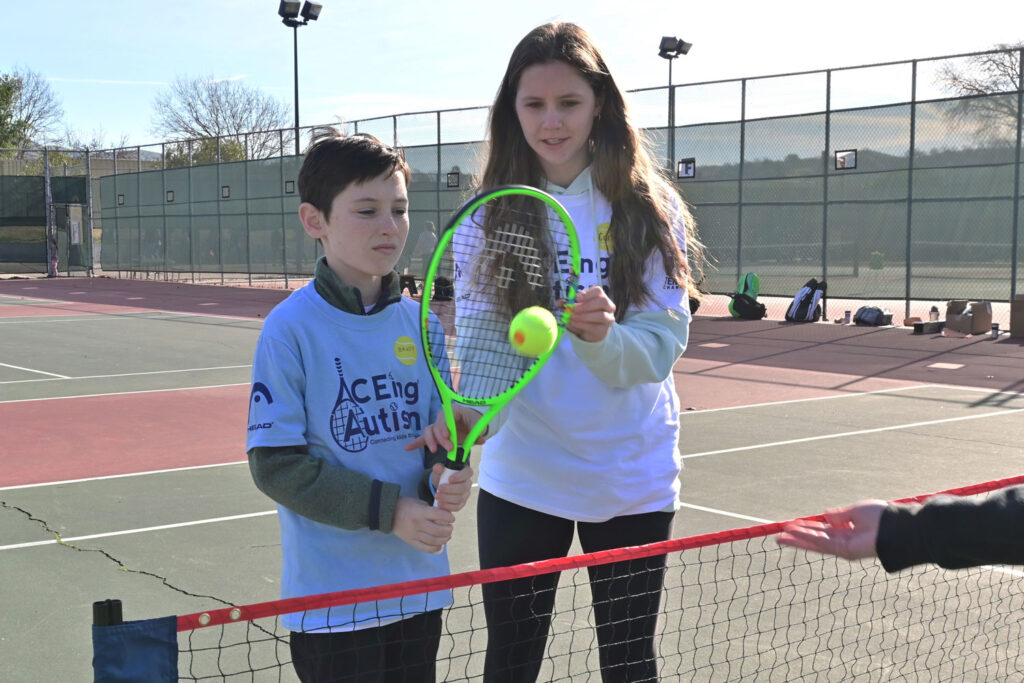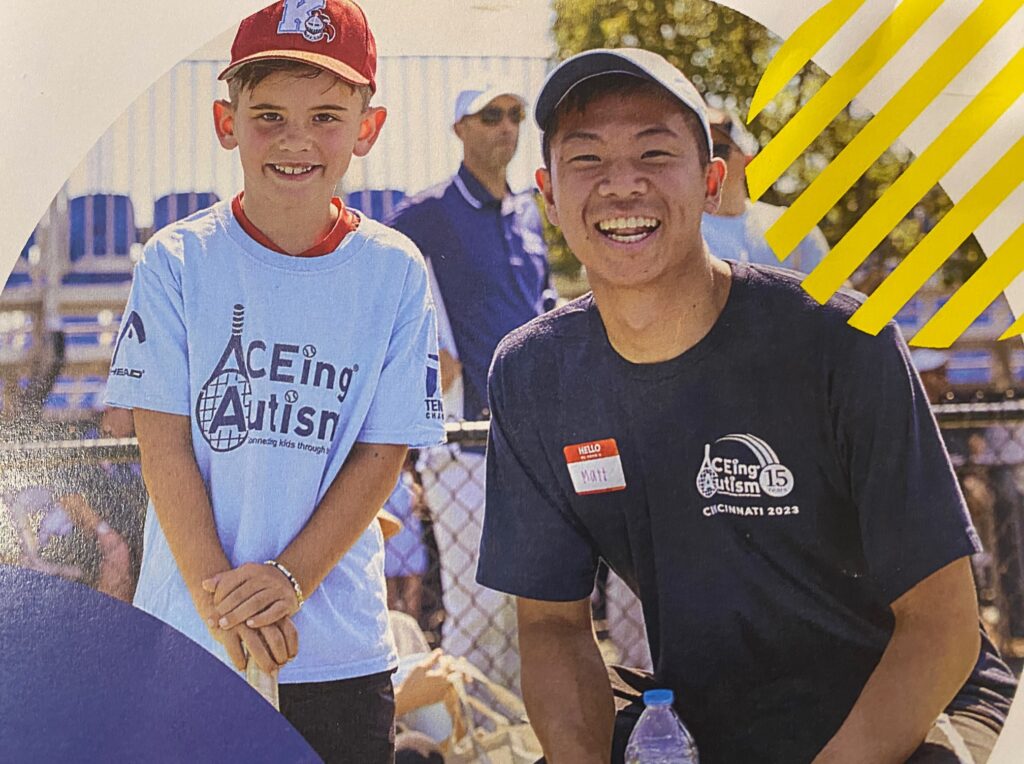New Tennis Program for Children with Autism Spectrum Disorder Expands to Amherst

Photo: ACEing Autism
This month ACEing Autism, a national program offering affordable and impactful tennis programming to children with Autism Spectrum Disorder (ASD), will launch its newest program in Amherst. This initiative, designed for children aged 5 to 18, will help participants develop tennis skills, improve fitness, and foster meaningful social connections in a supportive and inclusive environment. The program will be held at the Amherst Regional Middle School Tennis Courts, located at 170 Chestnut Street,, on the following Sundays: October 20, 27, and November 3, 10, with one additional Sunday meeting likely to be scheduled in November. Time: 2:00– 3:00 p.m. Cost: $100 for the full five sessions. ACEing Autism strives to keep costs affordable for families and can provide scholarships to families in financial need. Prorated fees are possible for children who start the program late or who are unable to attend every session. For more information on prorated fees, contact the local directors at amherst@aceingauthism.org. To register, click here.
ACEing Autism is a national non-profit organization whose mission is to help children with Autism Spectrum Disorder (ASD) grow, develop, and benefit from social connections and fitness through affordable tennis programming. Sports can often be difficult to access for children with ASD, but ACEing Autism bridges this gap with a specialized curriculum. Since its founding, ACEing Autism has positively impacted thousands of families across the U.S.

ACEing Autism’s curriculum was developed by Richard Spurling, a tennis professional, in collaboration with Dr. Shafali Spurling Jeste, a renowned autism researcher and pediatric neurologist. The program is highly individualized with each participant receiving one-on-one coaching from program volunteers, who “meet each participant where they are” and who help them to progress through the program at their own pace. Program directors and volunteers receive training in mentoring neuroatypical children. Many participants continue with the program over multiple seasons and show substantial growth in socialization as well as motor skills through their ongoing participation. The Amherst directors hope to offer another session of ACEing Autism in the spring and are looking into the possibility of moving the program indoors over the winter.
“We are excited to bring ACEing Autism’s tennis program to Amherst and provide a space where children with ASD can not only learn tennis but also benefit from the physical and social engagement that sports offer,” said Richard Spurling, Co-Founder and CEO of ACEing Autism.
The new Amherst Program is one of 150 such programs across 30 states. This calendar year, ACEing Autism has registered more than 6,000 participants. Its Amherst directors are Emily Magnant, a UMass junior, and Jerry Zhang, an Amherst College senior. Both Magnant and Zhang bring previous experience coaching/teaching tennis as well as working with neurodivergent children. Zhang had previously started an ACEing Autism program when he was a student at Farmington High School in Farmington, Connecticut. That program continues to operate. Magnant and Zhang decided independently to try to create an ACEing Autism program in Amherst and were put in contact with each other when they contacted the national office. They noted that there is not much precedent for the inter-campus community engagement collaboration that they have started. To date they have attracted a large team of enthusiastic volunteers and they are excited about the possibilities for growing the program as well as for building inter-campus collaboration.
Both Zhang and Magnant, who graduated from Chelmsford High School in Chelmsford, Massachusetts, were competitive tennis players in high school and got involved with ACEing Autism while looking for a way to combine their love of tennis with something that was more impactful in the community.
Zhang noted that the curriculum is research-based and that it is surprising how much impact the program can have in just five weeks. He said, “In the program we started in high school, we would see over even four or five weeks that the kids started to open up socially and become more confident and make positive connections with other kids in the program. The socialization and opening up was huge. And we also saw growth in their motor skills.” Magnant concurred. “We see a lot of growth in their excitement and in their determination to figure out how to do it.”
Both directors noted that the need for supportive programs like ACEing autism is high in Massachusetts, which has one of the highest rates of ASD in the nation (1 in 34 while the national rate is 1 in 68).
Magnant said that their team had been actively promoting the program in recent weeks with outreach to local schools, churches, and UMass Clubs and Organizations and that they are hoping to register more participants before their first session this coming Sunday (10/20).
More Information
General FAQ and description of a typical ACEing tennis session.
Contact the Amherst Program directors at amherst@aceingautism.org
